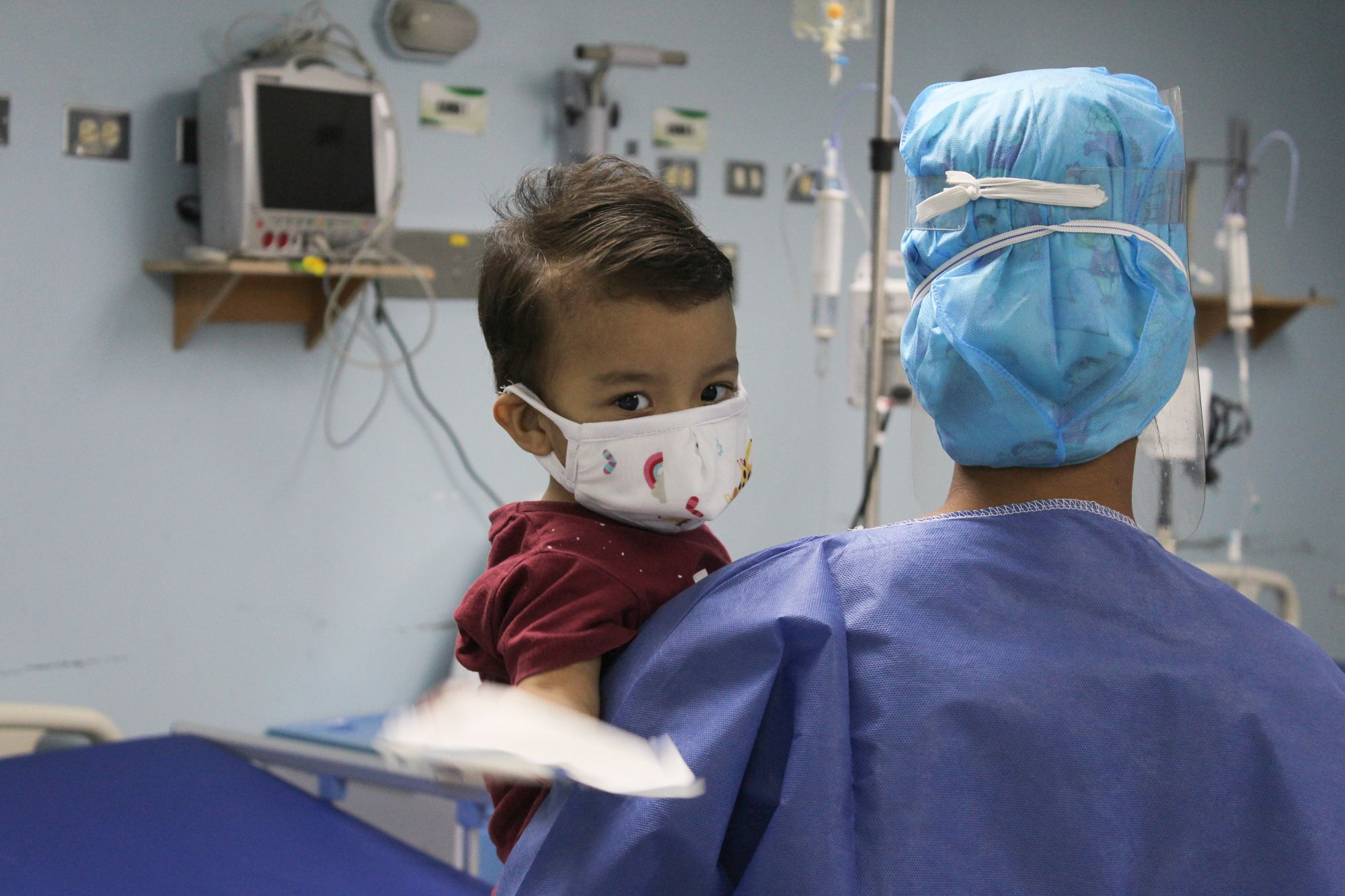The doctors said that the baby could die. That they would do everything possible to save him. They said it was a difficult case. For the first time, Osana felt that she had no control over what could happen to Dylan. She saw her son in the hospital bed and it seemed to her that he was a different child. He had changed. He did not want to eat. He did not want to play. He did not want to move.
Dylan turned one year old a week before his hospitalization. He took his first steps. He said "dad" and "mom" clearly. He imitated everything Osana did: from sticking out her tongue to putting her phone to her ear and pretending to make calls.
Osana read on the Internet that children infected with COVID-19 did not show severe symptoms. "It doesn't hit them that hard." She wondered why her son was the one who won the "bad lottery." She told herself that if a doctor had at least listened to her a week before, she wouldn't currently find herself in the waiting room of an operating room, paralyzed with fear.
The First Days
Osana was 17 years old when she gave birth to Dylan. At birth, doctors found that the child had a urinary infection. The newborn was hospitalized at the Hospital Clinico Universitario de Caracas for 15 days. Osana thought that those days of uncertainty were a test sent from God for not having used contraceptives.
The boy's father is called Aldo. He was 22 years old when he learned that Osana was pregnant. The couple lived with Aldo's mother in the Coche parish in Caracas. They had an entire wing of the house to themselves. The space was small, but private. Osana spent her days there because she had stopped working. Saturdays were the only days she left home. Osana was attending a para-system institute to finish high school.
The teachers at the institute began sending out assignments on the novel coronavirus in March 2020. On the 13th of that month, a Friday, the first two cases in Venezuela were confirmed. Osana memorized the symptoms: fever, dry cough, tiredness, shortness of breath and, in some cases, diarrhea. She learned that they could begin to manifest themselves 15 days after the transmission. When she read that the first patients with the new SARS-CoV-2 were diagnosed in China, Osana thought that the pandemic was a distant story. She didn't know anyone who was sick with COVID-19.
Osana celebrated her son's first birthday during quarantine on Friday, May 8, which was also Mother's Day. Aldo was away from home for a work trip. That night, Osana and Dylan stayed at the maternal grandmother's house. On the morning of Monday, May 11, the baby woke up crying. It was more a whine than a cry. He coughed little, but cried even louder when he did. His grandmother reached out to touch his forehead. "Osana! This boy has a fever!"
At the Maternal and Child Hospital of El Valle, no one from the emergency room wanted to admit him. A woman in a blue gown and mask told Osana that they couldn't treat him unless the baby had a high temperature that lasted at least three consecutive days.
Osana glared at her. She took the bus back home. She could feel that Dylan was hot, boiling. The fever did not drop below 39 degrees celsius. She gave him a pediatric acetaminophen. She relied on the advice of her mother, mother-in-law, and friends, and began giving him aloe vera for the cough. But Osana wanted to know why her son was sick.
To continue reading in Spanish, click here.
COVID-19 Update: The connection between local and global issues–the Pulitzer Center's long standing mantra–has, sadly, never been more evident. We are uniquely positioned to serve the journalists, news media organizations, schools, and universities we partner with by continuing to advance our core mission: enabling great journalism and education about underreported and systemic issues that resonate now–and continue to have relevance in times ahead. We believe that this is a moment for decisive action. Learn more about the steps we are taking.
